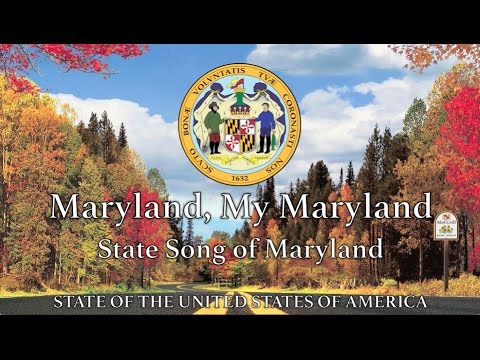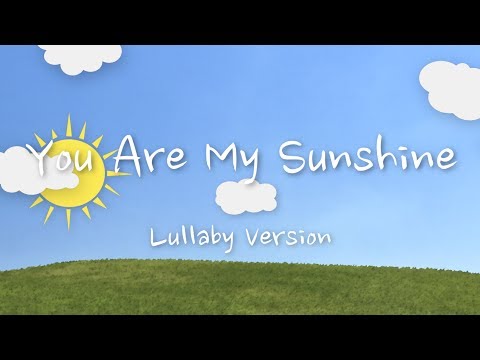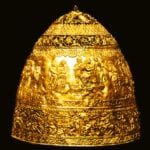Those are the good ones. At least, that’s what state songs are supposed to be like, if we’re going by averages. That means that to be one of the truly worst state songs, you have to work extra hard at being exceptionally terrible in some way. These are the ones that are, shall we say, special.
It takes a bold state, one that’s exceptionally sure of itself, to choose a state song with a title that’s self-satirizing. You don’t see Arkansas hustling to make “Proud to be an Illiterate” official, or Utah folks singing “We’re Pretty Much Mostly Mormons.” Florida is cool, though. Kinda like the obese guy nicknamed Fatty: confident enough to roll with it. That’s why the fact that Florida acknowledges its population of retirees is not the bad part. The bad part is that the song is better known by the title “(Way Down Upon) The Swanee River,” a song that, no two ways about it, is racist as all get-out. Written by Stephen Foster in 1851 as a minstrel song, it references “darkies” and is written in an obvious ethnic dialect. While some contemporary singers like to throw in a “Lordy” in place of “darkies” and modernize the language, the official state song remains as the one in this vernacular: For the record, other states with racist verses have adopted new lyrics or modernized versions of their state songs, if not replaced them outright. Florida thought about it in 1997, when a state representative attempted to have it changed. “Nah,” the old white men must have thought. “We like the old one. It’s snappy!”
It’s hard to know whether to admire New Jersey or pity it for being the only state without musical representation. It was the third colony to become a state (in 1787) and yet in all that time has yet to decide on an official state song. Maybe the New Jersey governors are just genius enough to refuse to allow their state to be touted with incomprehensible lyrics. The author of the song “I’m From New Jersey” has been lobbying for decades to get his song recognized, but the governor has never signed. It could be the fact that the songwriter’s name is Red Mascara. Or, it could be the fact that he has pimped out the song to other cities, substituting their names for New Jersey in the lyrics. His own website has a downloadable version with “Philly” substituted for “New Jersey.” The lack of a song has led many to unofficially think of Jersey icon Bruce Springsteen’s “Born to Run” as a de facto state song, and the state even named it the “Unofficial Youth Rock Anthem” in 1979. This leads to to questions. First, what is the Official Youth Rock Anthem of New Jersey? And second, why does the government of New Jersey give any kind of recognition to a song that, in a nutshell, says “Let’s get the hell out of town?”
If Maryland really wanted a state song that showed less support for the Confederacy, it could possibly switch to “Dixie.” Written in 1861 as a poem that has been referred to as America’s “most martial” verses, the first line refers to Lincoln as a despot, then goes on to rally the people to “avenge the patriotic gore.” It continues: A later verse says “‘Sic semper! ’tis the proud refrain.” You may recall that Lincoln’s assassin, John Wilkes Booth used those words as his refrain too, calling “Sic semper tyrannis” when he shot Lincoln. The song is also a schoolboy’s joke book, as it’s difficult to imagine anyone of school age singing “She breathes! she burns! she’ll come! she’ll come!” with a serious expression. The bloodiness of the Maryland state song is tempered a bit, though, when you actually hear the song being sung. The song’s tune is an old one. You’ll recognize it as “O Tanenbaum” or “O Christmas Tree.” The first time you hear the tune of a beloved Christmas song with lyrics about a despotic Lincoln, it comes as a bit of a shocker.
Tennesseans must laugh in the faces of the state song-less New Jersey residents. The Southern state never met a song it didn’t like. Tennessee holds the record for number of state songs, with a grand total of seven, plus one hilarious “bonus track.” The hit list of official Tennessee state songs includes “My Tennessee,” “When It’s Iris Time in Tennessee,” and “The Tennessee Waltz,” which suggests that pretty much any song that has “Tennessee” in the title gets made official, even if it’s a song about your best friend stealing your boyfriend (the waltz). “Rocky Top,” one of the other four official state songs, merely mentions the state, and is otherwise a hillbilly anthem: The eighth song you can find on the official Tennessee government website is the “Bicentennial Rap,” which the local legislature adopted as the Official Bicentennial Rap Song in 1996. It may be the only rap song to reference the Gore family, Elvis and Dollywood. It was supposedly adopted to make history appealing to students, which makes the line “Whisky, whisky, sipping smooth” a bit of a head-scratcher. You can read the full lyrics here. Because no one has been crazy enough to make a recording of this for youtube, you can watch “Rocky Top” above.
The runners-up for worst state song are too close to call. Should it be Louisiana, whose “You Are My Sunshine,” (clip above) was written by a man who vehemently opposed integration (one time during his tenure, he rode his horse up the steps of the Louisiana State Capitol to protest integration)? Or should it be Missouri, whose state song was made popular by being associated with Truman, then Truman himself said it was crappy and he hated it Other contenders include North Carolina, whose state song proclaims that its men are “plain and artless.” Connecticut just said, “What the heck” and picked “Yankee Doodle.” South Carolina isn’t alone in personifying its state as a woman, but things get weird when it talks about what happens when a foe tries to part her skirts. Perhaps someone should go into the business of writing new state songs, or maybe we should scrap them altogether. We’ve got a national anthem, and it’s not that bad. Sure, it used to be a drinking song, but “home of the brave” beats “plain and artless” any day.

















